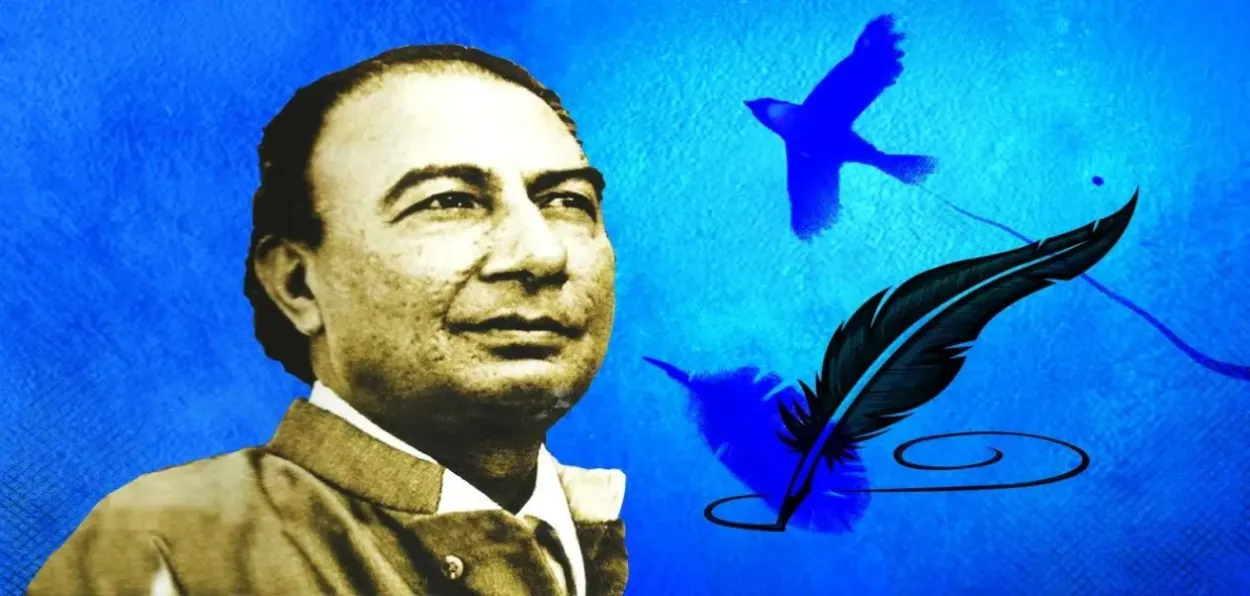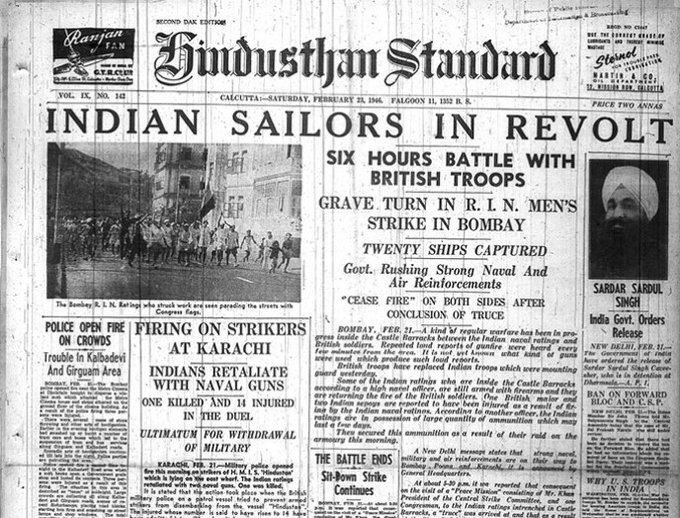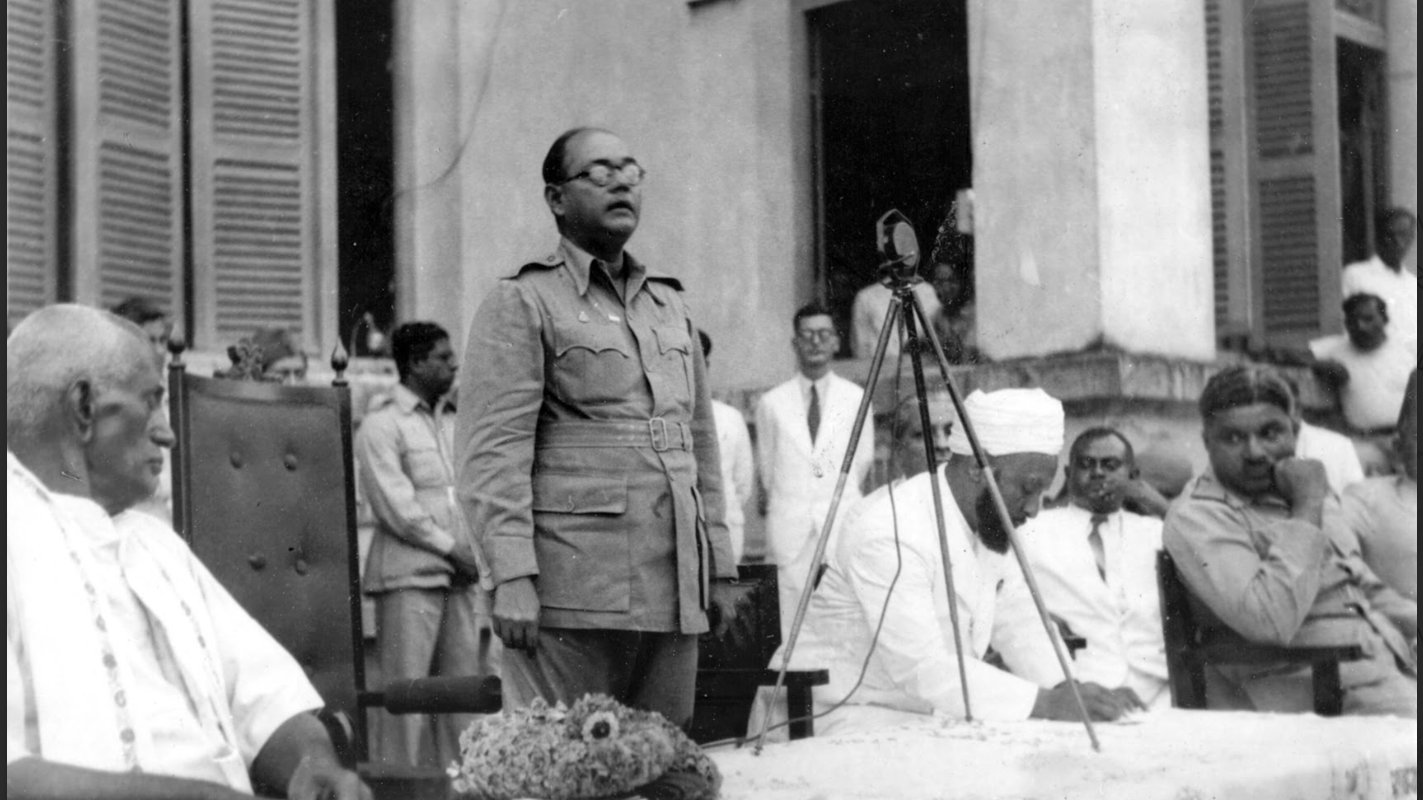
Saquib Salim
Can there be a connection between Sahir Ludhianvi, poet and lyricist, and Subhas Chandra Bose, one of the tallest leaders of the Indian Freedom Struggle? Very few know that Sahir, born Abdul Hayee in the late 1930s, was a member of the All India Students Federation (AISF). It was a left-leaning nationalist organization and Subhas Chandra Bose was it leader in the late 1930s. The organization formed the loyalist group in the party when Bose became the Congress President. Later Forward Bloc, a party formed by Bose, also drew its cadre from AISF.
A Slice Of History
Bose left India during the World War and raised Azad Hind Fauj with Japan’s help. In India, AISF and Forward Bloc carried on the struggle. After the war was over, the soldiers of Azad Hind Fauj were arrested and put to trial in military tribunals as Prisoners of War. The Indian youth came out on the streets in support of these soldiers.
These trials, known as INA trials, stirred the nation. Older leadership of Congress, Muslim League, and Hindu Mahasabha didn’t support the protests yet the youth belonging to all these parties came out in the open. At several places, police fired and killed these young men and women. In Mumbai, Karachi etc. (then Bombay) ratings of the Royal Indian Navy (RIN) rose in revolt. Police fired upon civilians and naval ratings killing many.
When everyone thought that Indian soldiers employed by the British would revolt, the political leadership led by Gandhi, Jawaharlal Nehru, and Sardar Vallabhbhai Patel asked youth and naval ratings to suspend the movement. The Naval mutiny started on 19 February 1946 and on 22 February Sardar Patel, as a representative of Congress released a statement which said, “I would, therefore, earnestly appeal to them (protestors in Mumbai and elsewhere) to be patient and peaceful.”
The youth felt betrayed. Sahir was one among them. He wrote a poem questioning parties and leaders on stopping the movement.
 Newspaper report of revolt in the Navy
Newspaper report of revolt in the Navy
In his poem titled, Ye Kiska Lahu Hai? (Whose blood is this?), Sahir asked, “Aey Rahbar-e-Mulk-o-Qaum Zara; Aankhe To Utha Nazre To Mila; Kuch Hum Bhi Sune, Humko Bhi Bata; Ye Kiska Lahu Hai, Kaun Mara?” (O leader of my country and nation look into my eyes and tell us. We are here to listen to you, whose blood is this? Who has died?)
The leader he was talking about was the Congress leadership in particular and other political leaders in general. He wanted to know why they were afraid to call these martyrs of freedom as one of their own.
In this poem, Sahir asked why the leadership was not acknowledging Subhas Chandra Bose and Azad Hind Fauj for making Indians believe that they could win freedom by force. He wrote, “Wo Kaun Sa Jazba Tha Jis Se Farsuda Nizam-e-Zist Hila;.........Janata Ka Lahu Faujo Se Mila, Faujo Ka Lahu Janata Se Mila” (Which passion shook up the old empire of imperialism. Which force ended the demarcation between the army and masses?)
Before Bose formed Azad Hind Fauj there was this clear distinction between the army and masses. His Azad Hind Fauj blurred the lines and now masses were fighting as army while army men acted like any other Indian. Sahir wanted the leadership to acknowledge this contribution of Bose.
 Subhash Chandra Bose as head of the Azad Hind Fauj
Subhash Chandra Bose as head of the Azad Hind Fauj
The leadership accepted the official version that people who were killed by the bullets of the British forces were rioters. Sahir asked, “Kya Qaum-o-Watan Ki Jai Gaa Kar Marte Hue Rahi Ghunde Thay? Jo Desh Ka Parcham Le Ke Uthay Wo Shokh Sipahi Ghunde Thay? Jo Baar-e-Ghulami Sah Na Sake Wo Mujrim-e-Shahi Ghunde Thay?” (Were those who raised the slogans for the nation and died goons? Were those soldiers who raised the national flag goons? Were those who could not accept slavery any more goons?)
Indian youth of 1946 were disillusioned with the older leadership and Sahir as their representative told them that they might negotiate but young people would revolt against the British empire. He wrote, “Hum Thaan Chuke Hain Ab Jee Mai Har Zalim Se Takrayenge; Tum Samjhaute Ki Aas Rakho, Hum Aage Badhte Jayenge” (We are determined to fight against every tyrant. You can hope for a settlement with the British and we will march ahead.)
ALSO READ: Reshi Moul: In whose memory people in Anantnag go vegetarian for 5 days
In popular culture, this aspect of Sahir has taken a backseat. Moreover, as a nation, we talk little of Subhas Chandra Bose’s Azad Hind Fauj and its impact on India’s freedom struggle.
